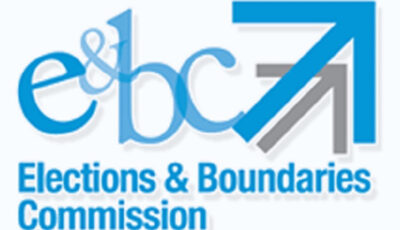Julien, eTeck have case to answer
 DIRECTORS of state companies will be held accountable for not abiding by their duties, regardless of when they held office.
DIRECTORS of state companies will be held accountable for not abiding by their duties, regardless of when they held office.
In a ruling yesterday, Justice Devindra Rampersad held that the four-year limitation provisions set out by the Companies Act, which are intended to liberate a litigant from the oppression of defending a stale and dated claim, was not a bar to bring legal action if it could be shown that the alleged wrongdoer was in control of a company at the material time.
The judge’s ruling now paves the way for special purpose company, Evolving Technologies and Enterprise Development Company’s (eTeck), lawsuit against eight former directors to proceed to trial.
Legal action was initiated against former eTeck chairman Ken Julien, and directors Dr Rene Monteil, Brian Copeland, Ulric Mc Nicols, Eugene Tiah, Sonia Noel, Wendy Fitzwilliam and John Soo Ping Chow, in a bid to recover US$5 million arising out of an investment in a China-based company, Bamboo Networks Limited (BNL), in 2005, to develop eTeck’s information technology business venture, as part of the former PNM regime’s diversification of the country’s downstream industries.
The eight had appealed Rampersad’s refusal to strike out eTeck’s claim, and order the matter go to trial, but this was overturned in December, 2012, when the appellate court sent the claim back to the judge to determine whether the allegations made against them,—fell outside the statute of limitation.
In his 22-page ruling, delivered in the San Fernando Civil Court, Rampersad disagreed with the contention by the former directors that the action against them could not be sustained in law as it fell outside the four-year limitation period.
He held if the court was to impose sanctions, it would be creating a public policy of immunity from scrutiny, which “could not have been the intention of Parliament, especially in relation to State funds.”
Rampersad said ‘public scrutiny of public posts must exist to secure public funds.”
According to the judge’s findings, if knowledge of an assumed breach of duty by a delinquent director could be attributed to the company, then that breach of duty will not be actionable until it could be prosecuted in accordance with the law. He held that in eTEck’s lawsuit, nothing precluded the company from taking legal action against its former directors.
“Therefore, the company’s right of action, following on from the adverse domination doctrine, could only arise when the majority of the directors, who can authorise an action, change to allow the same to be done,” he said. The former directors had argued that the multi-million dollar claim against them was
statute barred, that Section 3(1) of the Companies Act prevented the action as having been brought after the expiry of four years from the date on which the cause of action allegedly occurred.
They claimed that they could not be in breach of their duty as alleged, or at all, as they had relied in good faith on the reports provided by the senior management team.
In his ruling, Rampersad pointed out that “any job carries the potential of legal proceedings if there is a failure to act properly.”
“The potential subjection of any director to legal proceedings is a reality which hovers over every board to ensure that decisions made and conduct carried out are properly done to the appropriate standard and can be policed and remedied if appropriate,” he ruled. ..READ MORE







